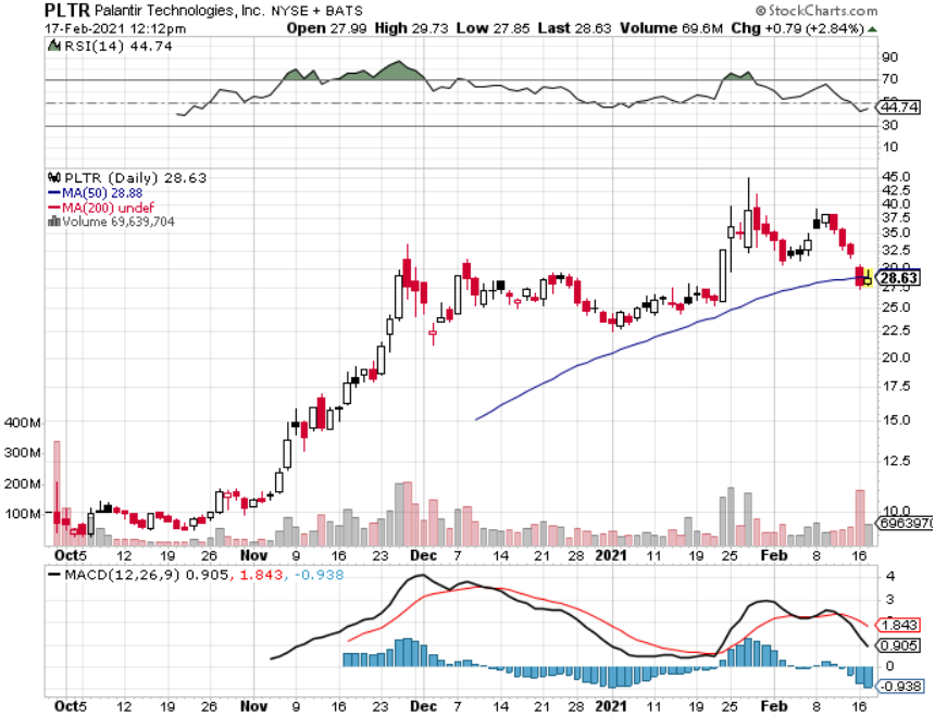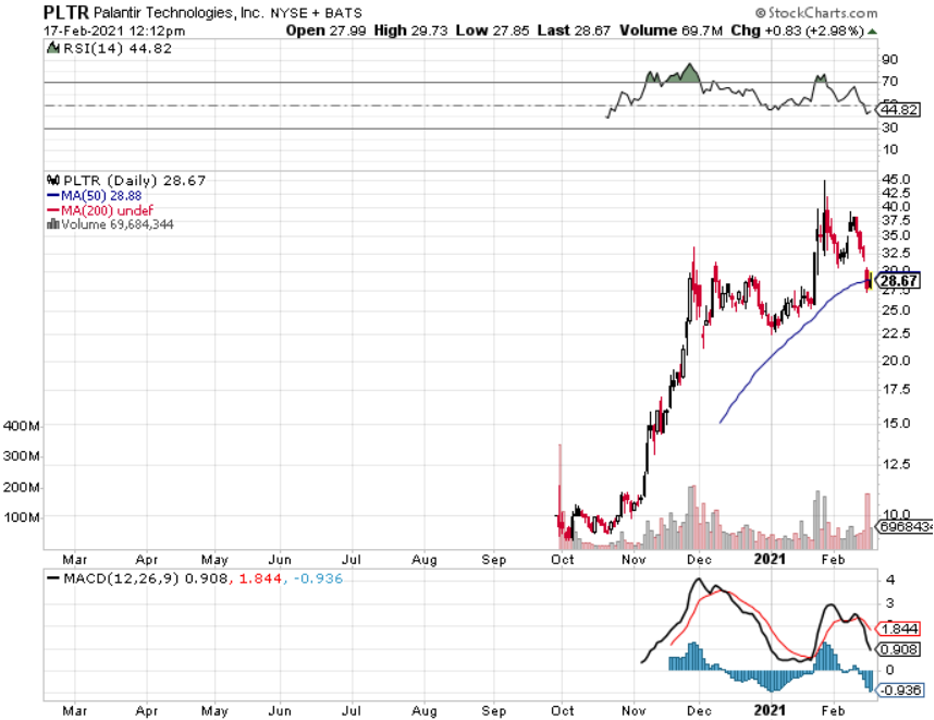The Tech Company Cozying Up with the White House
I hate to be a cheerleader but that is what I am about to do for the secretive big-data firm Palantir, co-founded by billionaire venture capitalist Peter Thiel.
With funding from the CIA’s non-profit venture capital arm In-Q-Tel, Palantir (PLTR) is named after mystical orbs in J.R.R. Tolkien’s “The Lord of the Rings” universe that can see both the past and present and allow users to communicate over vast distances.
To be concise, PLTR is the gold standard of data mining stocks and I urged readers to pile into this stock at $10.
That was then and this is now.
This stock is clearly a 10-bagger and after surging past $44 in January, the stock has consolidated to $28 today.
The fundamentals supporting this narrative is ironclad with the CIA delivering premium opportunity to accrue recurring government revenue.
We aren’t going into the semantics of how PLTR runs its business but in short, it basically provides customized software to clients analyzing large tranches of data for reasons ranging from finding suspected criminals to improving companies’ manufacturing capabilities.
The company acknowledges that government customers use its technology to kill people, so investors not comfortable with the deeper meaning behind the technology and revenue should steer away from this one and go with the softball versions of big tech.
Palantir gets both criticism and praise for the powerful nature of its data analytics software.
For example, critics allege Palantir's profiling tools used by intelligence and immigration agencies sometimes operate under a cloak of secrecy with zero oversight.
Palantir’s tools are not just for killing bad guys, they have also signed up companies from sectors that include healthcare, energy, and manufacturing.
Palantir has two main services that analyze data: Palantir Gotham and Palantir Foundry.
A customized option, Palantir Gotham is used by companies, government agencies, and law enforcement to combine information to decipher previously unseen patterns and identify relationships between sets of data ranging from social media posts and addresses to license plate numbers and personal relationships.
The algorithm then summarizes content together to make broader conclusions from the data.
Meanwhile, Foundry is a ready-made solution focusing on clients ranging from pharmaceutical and automotive businesses to aviation companies like Airbus and is meant to cut down on the costs associated with Gotham, such as the need for multiple on-site engineers.
Who is the CEO?
Alex Karp.
A graduate of Stanford Law School.
Karp has been explicit in his belief in the need for Silicon Valley companies to work with the U.S. government and law enforcement agencies precisely because they are American companies.
Palantir refers to effective applications of its software such as combatting Ponzi scheme conman Bernie Madoff to disaster recovery to thwarting cyberattacks and fighting child exploitation.
Not only that, Palantir’s software was deployed in the aftermath of Hurricane Florence in 2018 alongside Team Rubicon, an organization of military veterans that responds to disaster areas. With Palantir’s Gotham Operations module, the group identified and responded to neighborhoods in the greatest need of assistance.
How does the software directly help real-time U.S. soldiers in the field?
Its software helped the U.S. military track insurgents in Afghanistan planting improvised explosive devices (IEDs) by finding correlations between weather patterns, command wire IED attacks, and biometric information found on explosive devices.
Palantir has also sold its software to the Salt Lake City Police Department, helping officers reduce the time it takes to perform complex investigations by 95%.
Granted, this tech company is not for everyone, which is why many global brands such as Hershey’s, Coca-Cola, Home Depot, and American Express have terminated relationships.
In the short term, PLTR blistering rally will face an expiration of a lockup that allows 80% of total shares to be sold which could unleash a wave of selling from insiders tempted to cash in their shares.
The company’s market valuation at 39 times 2021 sales estimates implies revenue growth well in excess of 40%, at this pricy level, it makes PLTR an easy sell the news victim.
PLTR has tanked for two consecutive weeks and shares are down 18% from a record high late last month.
The overheating of shares has come back to reality with a tepid annual sales growth forecast of at least 30%. That suggests a significant slowdown from last year.
By comparison, sales growth in 2020 reached 47%, even surpassing $1.1 billion.
The silver lining is that government sales jumped 85% reassuring investors that the quality of sales could not be higher.
The company insiders have waited years to unload shares, and if there is a significant dip, I would put money to work in PLTR.
Shares are going to $100 and readers should ride the ladder up with them.




